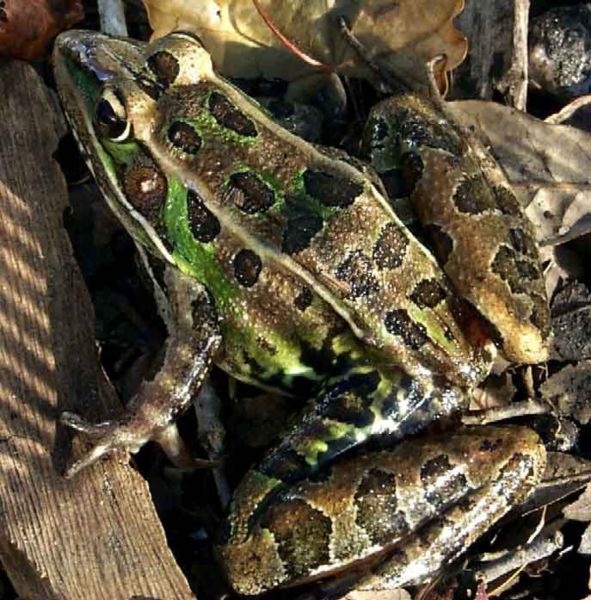 Combinations of ten of the world’s most popular pesticides decimate amphibian populations even if the concentrations are within EPA safe limits for each chemical individually. These supposedly safe low-dose cocktails kill 99 percent of leopard frog tadpoles. One pesticide alone—endosulfan, a neurotoxin banned in several nations but still used extensively in US agriculture—killed 84 percent of the leopard frogs all on its own.
Combinations of ten of the world’s most popular pesticides decimate amphibian populations even if the concentrations are within EPA safe limits for each chemical individually. These supposedly safe low-dose cocktails kill 99 percent of leopard frog tadpoles. One pesticide alone—endosulfan, a neurotoxin banned in several nations but still used extensively in US agriculture—killed 84 percent of the leopard frogs all on its own.
Obviously we can’t get a new EPA chief fast enough.
Biologist Rick Relyea at the U of Pittsburgh exposed gray tree frog and leopard frog tadpoles to small amounts of the 10 most widely used pesticides on Earth. He chose five insecticides (carbaryl, chlorpyrifos, diazinon, endosulfan, and malathion) and five herbicides (acetochlor, atrazine, glyphosate, metolachlor, and 2,4-D). He then administered: each of the pesticides alone, all the insecticides combined, a mix of the five herbicides, or all 10 of the poisons.
The findings published in Oecologia: A mixture of all 10 chemicals killed 99 percent of leopard frog tadpoles. The insecticide-only mixture killed 99 percent of leopard frog tadpoles. The herbicide mixture had no effect on the tadpoles. When leopard frogs perished, gray tree frogs did not succumb and flourished in the absence of leopard frog competitors.
This study builds on a 9-year effort by Relyea to understand links between the global amphibian decline, pesticide use, and the threat to humans. Leopard frogs were once plentiful across North America but their population has declined in recent years as pollution and deforestation have increased.
Okay, here’s one link: Humans get more populous and pudgy as frogs and forests decline.
Another study Relyea published in Ecological Applications last month reports that gradual amounts of malathion—the most popular insecticide in the US—too small to kill developing leopard frog tadpoles, instead sparked a biological chain of events that deprived them of their primary food source. Consequently nearly half the tadpoles in the experiment failed to reach maturity and would have died in nature.
Relyea also published papers in 2005 suggesting the popular weed-killer Roundup® is extremely lethal to amphibians in concentrations currently found in the environment.
Relyea for EPA chief?
Julia Whitty is Mother Jones’ environmental correspondent, lecturer, and 2008 winner of the PEN USA Literary Award, the Kiriyama Prize and the John Burroughs Medal.










